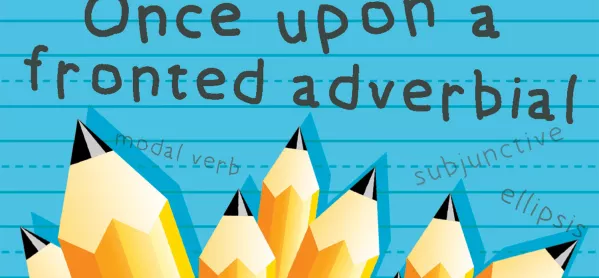This column on primary writing caused a stir and sparked a debate on Edu-Twitter over the weekend. As an Easter treat, we’ve released it from behind the paywall, and made it free for everyone to read. Do you agree with Jo? What’s more important: what children write, or how they write it? Join in with the conversation on Twitter and tag @tes. You can access Jo’s back catalogue here: http://www.tes.com/news/author/jo-brighouse
“Andrew, this is the last time I’m telling you,” I said. “Why is it so difficult to sit still and leave your pencil alone?”
Of course, what I was really asking was, “Why can’t you be more like an adult?”
Sometimes we expect children to be the finished article when that is precisely what they are not. They are still very much a work in progress and should be expected to behave, speak and write like a child. Saint Paul knew this; teachers know this; but I’m not convinced curriculum creators always do. The current key stage 2 writing curriculum is a case in point.
When I was at primary school, writing lessons were all about stories. We were told to imagine - and left to get on with it. Although many loved this, it left just as many staring at the blank page in despair, complaining they didn’t know what to write.
Since then, teaching has moved on. Story planning and structure was led; the writing process was modelled more; tips for writing an opening sentence were found and borrowed from famous authors. Pupils struggling to get started were given footholds.
Then the whole process shifted again. It wasn’t enough to use your imagination and appeal to the reader - children needed to recognise and name every part of their sentences. Have you used a modal verb? Can you point to an ellipsis? Have you demonstrated use of the subjunctive to convey a sense of formality?
No space to imagine
Somewhere along the way we have, very literally, lost the plot. We are teaching children that how they write is more important than what they write. Once upon a time, Year 6 teachers could spend days talking about story structure, plot and character. Now, they stand by a grammar-revision PowerPoint shouting “expanded noun phrase means expanded noun phrase” like some sort of demented Theresa May.
Writing stories is a child’s rite of passage. If you’re putting all your energies into ticking off fronted adverbials, then there’s not a lot of space left to imagine. And don’t mistake sophisticated vocabulary for sophisticated thinking. While some children genuinely can and do use an advanced vocabulary, for many, their writing is the lexical equivalent of donning their mum’s high heels and lipstick, and heading to the off-licence to mispronounce “pinot grigio”.
So what if the writing is sometimes missing a parenthesis or subordinate clause? If the story is interesting and imaginative, then surely that’s just as important a part of the learning curve as parsing grammatically complex but essentially dull sentences.
If Sats didn’t loom so large, then maybe we could get less technical with writing; to enjoy the story before we go to work on it with the checklist - to remember that sometimes it’s acceptable to write like a child when you are, in fact, a child.
Jo Brighouse is the pseudonym of a primary teacher in the Midlands




